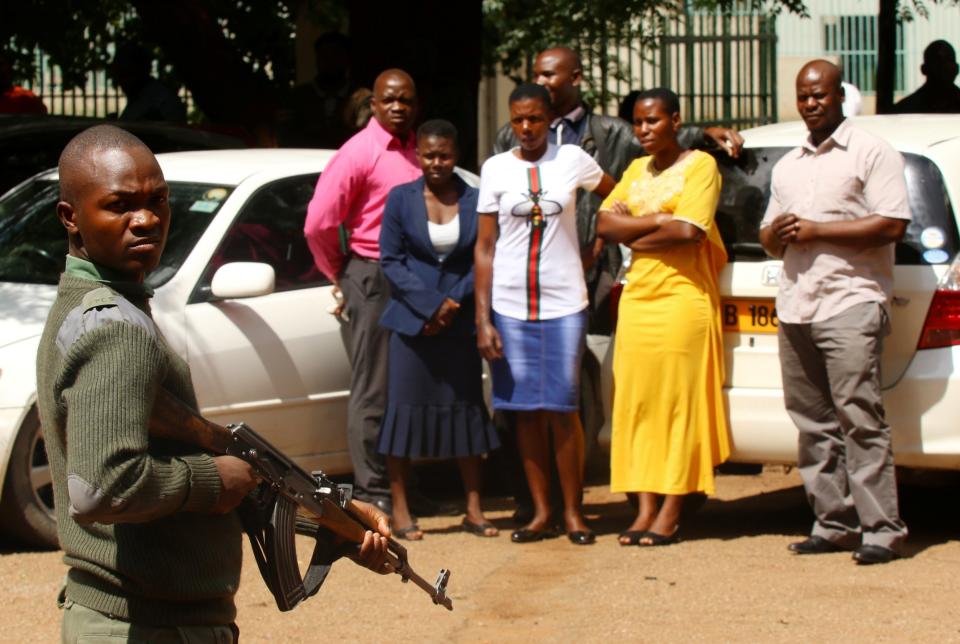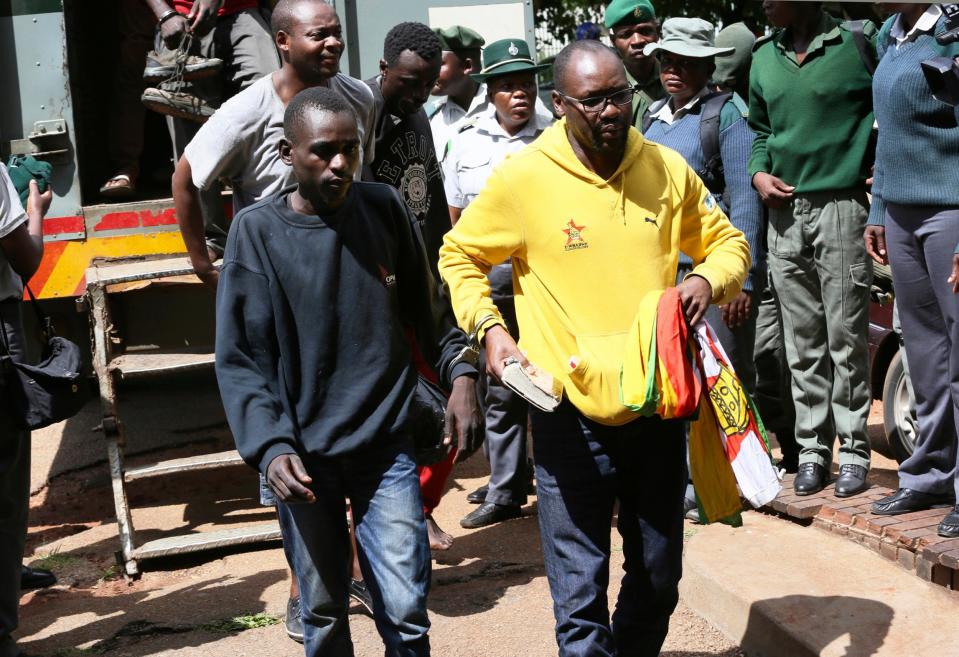Zimbabwe protests: At least eight people dead and hundreds injured in government crackdown
At least eight people have died with hundreds more injured in Zimbabwe following a violent crackdown on street protests.
The protests are over an increase in fuel prices, with gasoline more expensive in Zimbabwe than anywhere else in the world. The government has responded with a brutal clampdown.
Amnesty International said eight people were killed when police and military fired on crowds, though reports of the death toll have varied.
The Zimbabwe Association of Doctors for Human Rights said it has treated 68 people for gunshot wounds, with more than 100 cases of "assaults with sharp objects, booted feet or baton sticks".

Injured people streamed into a private hospital in the capital, Harare. Some had broken legs. One nurse attended to a man with a broken spine.
Albert Taurai told Associated Press he had ventured out to look for bread when plainclothes officers wearing masks beat him up, accusing him of barricading roads.
On Friday, the government also enforced a “total internet shutdown” amid the protests, which have lasted for days and seen more than 600 people arrested.
The High Court will hear a challenge to the shutdown on Monday, the Zimbabwe Lawyers for Human Rights said.

Evan Mawarire, a prominent pastor and activist, faces 20 years in prison on a subversion charge. He called it "heartbreaking" to see the new government of president Emmerson Mnangagwa acting like that of former leader Robert Mugabe.
Zimbabweans had briefly rejoiced when Mr Mnangagwa succeeded Mr Mugabe, who was forced out in late 2017.
They expected the new president to deliver on his refrain that the country "is open for business."
But frustration has risen over the lack of improvement in the collapsed economy, which doesn't even have a currency of its own.
The UN human rights office urged Zimbabwe to stop the crackdown on Friday, citing reports of intimidating door-to-door searches by security forces.
Additional reporting by Associated Press.

 Yahoo News
Yahoo News 
